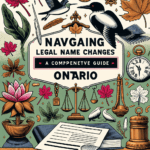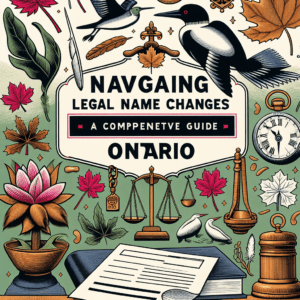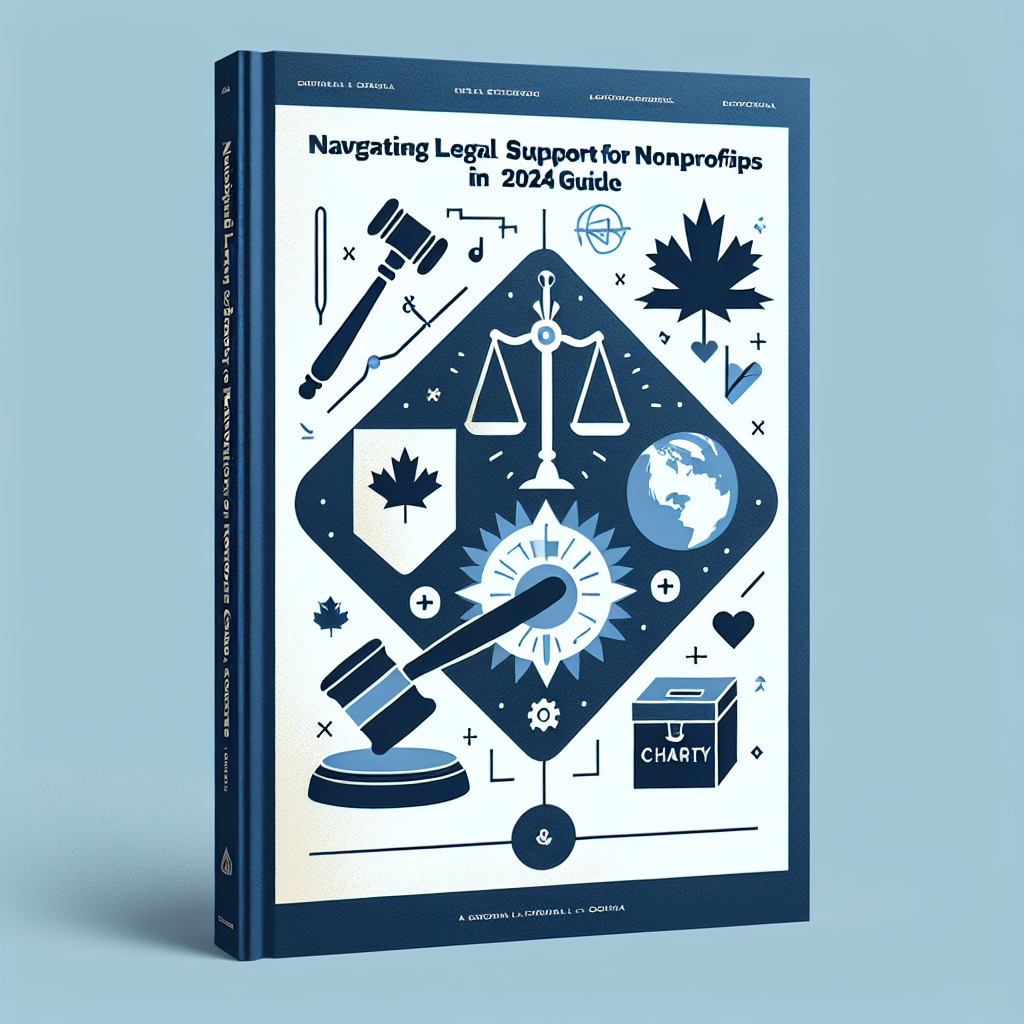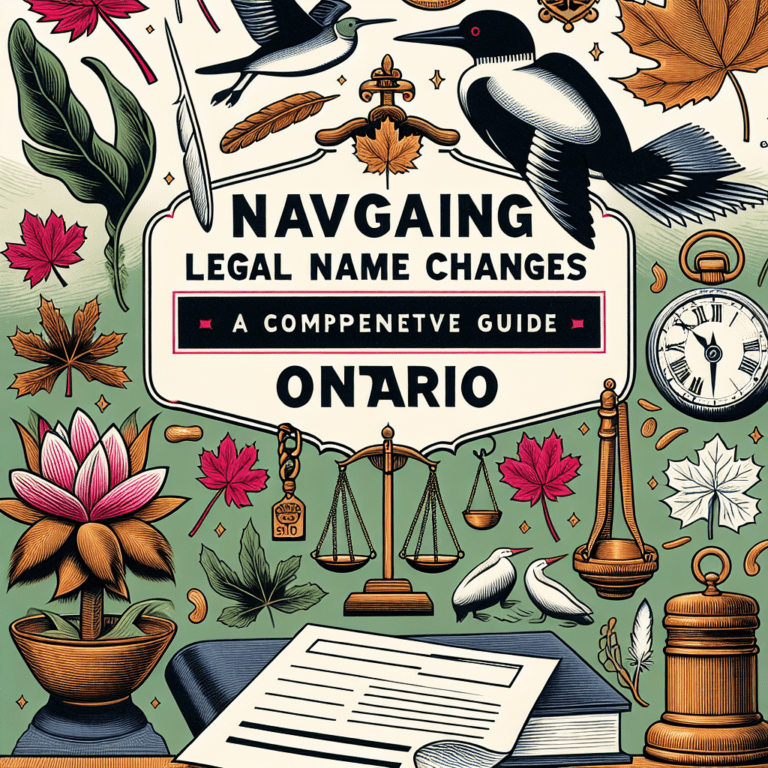As a nonprofit organization in Canada, navigating the complexities of legal support can feel overwhelming. The stakes are high—nonprofits face unique challenges, including compliance with regulations, safeguarding stakeholder interests, and managing risks. Without the right legal backing, organizations can find themselves in precarious situations, jeopardizing their mission and funding. This guide on legal support for nonprofit organizations in Canada 2024 aims to empower you with essential insights and actionable strategies to ensure your organization thrives in the evolving legal landscape.
Understanding the Legal Landscape for Nonprofits in Canada
In Canada, the legal framework governing nonprofit organizations is multifaceted, predominantly encapsulated within the Canada Not-for-profit Corporations Act (NFP Act) and various provincial regulations. Nonprofits must recognize that they are not merely exempt from taxation; they are also held to a higher standard of accountability. This dual nature means that understanding your obligations under the law is paramount. Nonprofits are required to maintain proper governance structures, adhere to specific filing requirements, and ensure transparency in their operations and financial reporting.
Additionally, nonprofits in Canada face unique challenges regarding employment law, fundraising regulations, and intellectual property rights. For example, some provinces have specific laws regulating charitable fundraising, imposing strict accountability measures. Ignorance of these laws can lead to severe repercussions, including penalties or loss of charitable status. An essential insight here is recognizing that ensuring compliance is not just about risk management; it’s about fostering trust with stakeholders and demonstrating a commitment to ethical practices.
Moreover, as the legal landscape evolves, nonprofits must stay attuned to emerging trends, such as the rise of digital fundraising and social enterprise models. These developments introduce new legal considerations, including data privacy, intellectual property rights, and contractual obligations. Keeping abreast of these changes allows nonprofits to leverage opportunities while mitigating risks effectively. Understanding the legal landscape is not merely an obligation; it is a strategic advantage that can position your nonprofit as a leader in the sector.
Essential Resources for Nonprofit Legal Support in 2024
As we step into 2024, various resources are available for nonprofits seeking legal support. One of the most valuable assets is the network of legal clinics and pro bono services tailored specifically for nonprofits. These organizations provide expert legal advice at little or no cost, making them an invaluable resource for small to mid-sized nonprofits with limited budgets. Establishing connections with these clinics can pave the way for ongoing legal support, ensuring that your organization can access timely guidance as needed.
In addition to legal clinics, numerous online platforms provide comprehensive legal resources for nonprofits. Websites like Imagine Canada and the Canadian Bar Association offer extensive information on legal compliance, governance practices, and sector-specific laws. These platforms often feature webinars, articles, and guides designed to address common legal concerns facing nonprofit organizations. Furthermore, leveraging social media groups and networks dedicated to nonprofit management can facilitate connections with legal experts and peers, enabling you to share knowledge and tackle legal challenges collaboratively.
Lastly, engaging with legal professionals who specialize in nonprofit law is crucial. Establishing a relationship with a lawyer experienced in the nonprofit sector can provide personalized guidance tailored to your organization’s unique needs. Many law firms offer specialized services for nonprofits, including compliance audits, governance structure assessments, and risk management strategies. By investing in legal expertise, nonprofits can proactively address potential issues before they escalate, ensuring a solid foundation for their mission-driven initiatives.
Navigating legal support for nonprofit organizations in Canada in 2024 requires a multifaceted approach. By understanding the legal landscape and leveraging available resources, you can empower your organization to thrive in a complex environment. The stakes are high, but with the right strategies, you can mitigate risks and ensure compliance while focusing on your mission. Don’t let legal challenges hold your nonprofit back—explore the available resources, connect with experts, and safeguard your organization’s future. Engage with your community and take proactive steps to ensure your nonprofit continues to make a meaningful impact. The journey towards sustainable nonprofit operation starts with informed legal support—make it a priority today.
Navigating Legal Aid Options for Refugees in Canada 2024Exploring Human Rights Legal Support in Canada: 2024 InsightsNavigating Legal Support for Wrongful Termination in Canada 2024Relevant LinkRelevant LinkRelevant LinkUnderstanding LegalZoom Billing: Fees, Structure, and InsightsUnderstanding LegalZoom’s Basic Will: Key Features ExplainedUnderstanding LegalZoom’s Business Address Services ExplainedRelevant LinkRelevant LinkRelevant LinkUnderstanding Legal Self-Defense Weapons in CanadaUnderstanding Legal Paper Size: Dimensions and Uses ExplainedNavigating Legal Name Changes in Ontario: A Comprehensive GuideRelevant LinkRelevant LinkRelevant Link



















